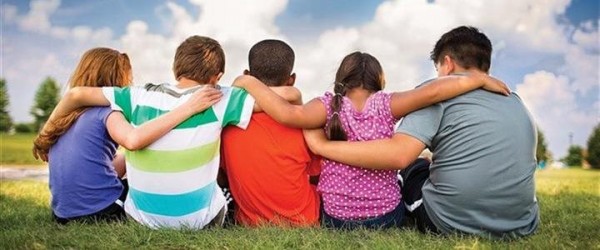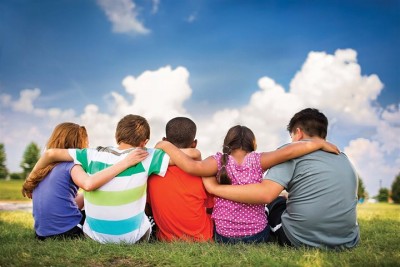 (BPT) – During the summer while school’s out, kids are at greater risk for learning loss and weight gain unless they have a game plan that includes learning enrichment and physical activity. Summer camps are a great way to ensure children continue to grow socially, emotionally, cognitively and physically, while learning skills that will serve them well in the coming school year and beyond. It’s not too early to begin planning your summer camp options now.
(BPT) – During the summer while school’s out, kids are at greater risk for learning loss and weight gain unless they have a game plan that includes learning enrichment and physical activity. Summer camps are a great way to ensure children continue to grow socially, emotionally, cognitively and physically, while learning skills that will serve them well in the coming school year and beyond. It’s not too early to begin planning your summer camp options now.
Working with SEER, an independent research organization, the Y surveyed nearly 40,000 parents with children enrolled in Y camp programs. The survey revealed that 91 percent of parents said they agreed day camp programs helped their kids make new friends. In addition, 81 percent said they agreed the program helped their kids discover what they can achieve, while 86 percent agreed their child felt a sense of belonging at camp.
Taking time to research summer camp options is critical to finding the best fit for your child. Consider a camp program that offers learning, exploration and achievement to help make your child’s summer the best ever. Here are some questions to ask when selecting a camp:
1. Does your child want to attend a day camp or a resident camp? Typically, day camps are a child’s first camp experience that prepares him or her for overnight camps later on, but there’s no rule that says kids must start close to home. It all depends on what you’re looking for, and what’s comfortable for your child. Most importantly, you want your child to have fun at camp! As a nonprofit committed to youth development, the Y offers more than 1,800 day and 300 resident camp programs. Y camps focus on three areas proven to impact child development: friendship, accomplishment and belonging.
 2. What camp size is best? Make sure your camp meets the recommended leader-to-participant ratio. For example, there should be a 1:10 ratio for camps catering to 8 to 10 year olds. Also, ask yourself how your child interacts with peers. Some kids enjoy large camps where they can make many friends, while others do better in smaller groups, like a few dozen campers, where there’s no fear of getting lost in the crowd.
2. What camp size is best? Make sure your camp meets the recommended leader-to-participant ratio. For example, there should be a 1:10 ratio for camps catering to 8 to 10 year olds. Also, ask yourself how your child interacts with peers. Some kids enjoy large camps where they can make many friends, while others do better in smaller groups, like a few dozen campers, where there’s no fear of getting lost in the crowd.
3. Does the camp have qualified staff? Selecting a camp requires trusting that the camp selects well-qualified young adults and trains them well to safely lead programs that provide values lessons for your child. Learn about the staff and camp directors to be assured that the camp screens, carefully selects and trains their leaders. Many camps are accredited by the American Camp Association, which requires adherence to a wide range of safety practices.
4. Does your child want a general camp or a specialty camp? Many organizations like the Y offer more classic programs that get back to nature with rustic cabins and a variety of outdoor activities. Some offer specialty programs with a single goal in mind, such as nature education, training for a sport, horseback riding or performing music. Talk to your children about what type of camp interests them and would best provide their ideal summer experience. Traditional camps that offer a wide variety of outdoor programs can be very impactful, and provide kids with choices that they can make independently.
5. Does the camp encourage healthy eating and physical activity? The collaboration between first lady Michelle Obama, the Partnership for a Healthier America and the Y has focused on developing healthy habits in kids, families and communities across the nation. These healthy eating and physical activity (HEPA) standards have been adopted by summer day and resident camps. Make sure your child’s camp program offers plenty of health-conscious meals and snacks while providing plenty of chances for exercise.
When kids are out of school, they can face hurdles that prevent them from reaching their full potential, related to hunger, water safety, academics, safe spaces to play and health. Through summer camp and other youth development programs, the Y helps more than 9 million youth nationwide “hop the gap” and achieve more, providing a safe to place to learn, stay healthy and build friendships.
To learn more about Y of the USA summer and day camp programs, visit www.ymca.net/camp.

